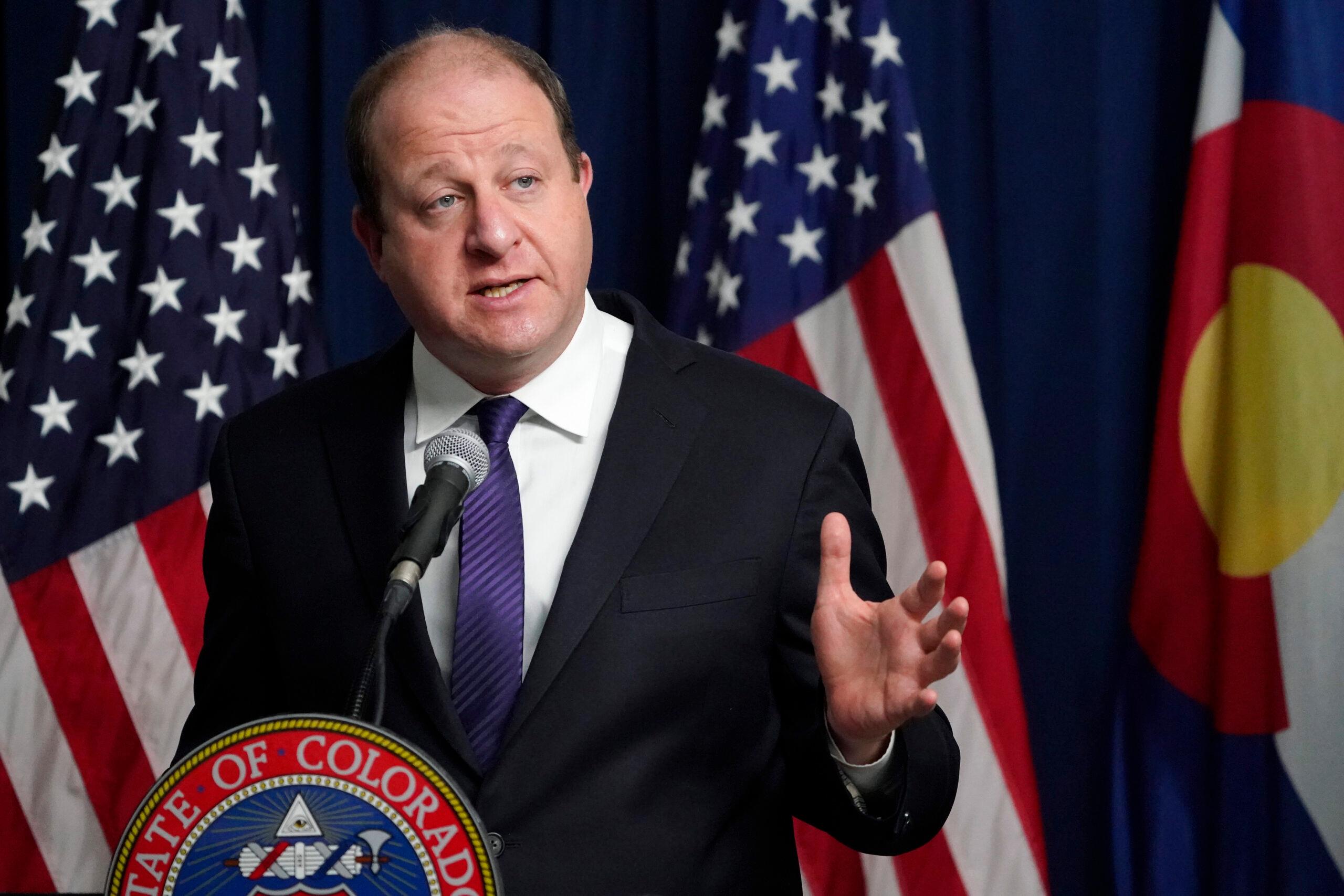
Gov. Jared Polis all but ruled out the likelihood of another statewide lockdown Friday, saying he trusts Coloradans to respond to his pleas for more face coverings and social distancing to arrest the spread of COVID-19.
In a briefing for the state Friday, Polis said he was counting on Coloradans' love for vulnerable relatives to get them to reverse course and take the pandemic more seriously.
"I don't think this is about stay at homes or lockdowns anymore," Polis said, noting improvements in treatment of the sickest patients. He also referenced a greater knowledge of how to control the spread of the virus gained through months of dealing with it and learning facial coverings, social distancing, and staying away from people outside your own household all help.
"This is not a lost cause," Polis said. "I will never give up on the people of Colorado."
But he's hedging his bet.
Polis said he was signing a couple of executive orders directing hospitals to prepare for a surge of patients and requiring hospital leaders to report to the state on their "maximum surge bed count" capacity by next Wednesday. He also announced that he was returning the state's emergency operations center to "Level One" — the highest level of readiness, meaning representatives of several state agencies will return to working together to address the growth in cases.
Polis’ announcement comes as COVID-19 cases in Colorado have risen exponentially. There were more than 6,400 newly identified cases announced Friday by Polis, who noted that both the number of tests conducted Thursday and the number of infections uncovered were records for the state since the start of the pandemic. Later in the day, data for Thursday showed that 5,689 new cases were identified. That's still an unwanted record for the state.
Deaths from COVID-19 are also rising, with double-digits recorded on six different days this month, including 21 on Nov. 4. That's the most in a day since May 14, as the state was coming out of the first wave of the virus. Another 20 people died on Nov. 5.
Under Polis's order, hospitals will be required to increase their capacity as high as they can, while augmenting staffing to handle both COVID-19 and non-COVID patients. If they approach capacity, they will have to reduce or discontinue elective surgeries, and use an inter-hospital transfer system to maximize the use of beds region-wide.
If the number of patients keeps growing, the state would then open one, two or all three of the state's alternative care sites in Denver, Westminster and Pueblo, which could be staffed and opened within a couple of weeks if hospitals became overwhelmed.
"I continue to hope that we will not use those facilities," Polis said. "But we are prepared to activate them if necessary, and we are a lot closer today than we were two weeks ago or four weeks ago."
Cases began to rise as cold weather forces people indoors, where recent studies indicate the risk of transmission roughly is 19 times greater than outside.
State officials have moved counties across Colorado into ever-increasing restrictions. Just this week, 15 counties were moved to “level orange” by the state health department, the highest level of restrictions short of a stay-at-home. Eight counties were moved to orange last week.
Counties have pleaded with Polis to enact stay-at-home orders where case counts are highest. In a letter sent to the state last week, counties said the state should not delay in issuing strong orders based on its own criteria developed over the summer “...these delays will reduce the value of the additional restrictions provided in the higher level, essentially rendering them “too little, too late.”
Local public health directors said traditional containment measures, like contact tracing and quarantine, were no longer effective in the face of overwhelming case counts.
But even as governors in Oregon and New Mexico issued new lockdowns in advance of Thanksgiving, Polis continued to resist, instead again prodding Coloradans to use common sense in dealing with the virus. And he added a new tactic before family gatherings: Guilt.
"The more family members that make that decision to self-quarantine, the more likely it is that you're not really bringing a loaded pistol for Grandma's head," Polis said.
Schools across Colorado have not waited for the state to act, announcing plans to shift to remote learning throughout the week, including those in Jefferson, Douglas, and Mesa Counties. Denver switched to remote learning for third grade and up weeks ago.
While medical care has greatly improved since the spring, and the death rate has dropped, hospital capacity is nonetheless tightening. At a Thursday briefing, state officials said they hoped to avoid opening the alternative care facilities.
“We don't want to get to that position,” said Kevin Klein, director of the Division of Homeland Security and Emergency Management. “We're going to do everything we can to build capacity within the existing facilities.”
And Polis continued to express optimism that a vaccine could be ready for distribution even before the end of the year and that some Colorado health care workers might be able to get it before 2021.
This story has been updated with the latest data from the Colorado Department of Public Health and Environment









